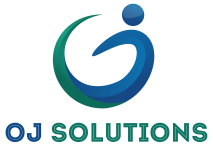As we progress into the heart of the 2020s, one trend stands out among the rest: the expanded use of Artificial Intelligence (AI). From transforming the healthcare industry to redefining financial systems and revolutionizing transportation, AI has become more pervasive across various sectors. However, this pervasive integration isn’t without its challenges, and it continues to spark debates about ethics, privacy, and regulatory frameworks.
Healthcare: AI to the Rescue
In the healthcare sector, AI has emerged as a game-changer. Advanced algorithms are being used to detect diseases with a level of accuracy that matches, and often surpasses, human expertise. Machine learning models are aiding in patient risk identification, facilitating preventative care measures, and reducing hospital readmission rates.
AI-powered telehealth solutions have become more prevalent, particularly in the wake of the COVID-19 pandemic, offering remote diagnosis and monitoring capabilities. Meanwhile, AI is also playing a vital role in drug discovery and personalized medicine, accelerating the development of effective treatment strategies.
Finance: A New Era of AI-driven Solutions
In finance, AI has become a cornerstone for a multitude of applications. From algorithmic trading, which uses AI models to make lightning-fast trading decisions, to fraud detection systems that spot anomalies that may indicate fraudulent activity, AI is making its mark.
Furthermore, AI-powered chatbots and virtual assistants are reshaping customer service in the banking sector. Predictive analytics, powered by AI, are also being used to assess credit risk, leading to more informed and fair lending decisions.
Transportation: Steering Towards Autonomy
When it comes to transportation, AI is at the forefront of the push towards autonomous vehicles. AI algorithms are being used to navigate, detect obstacles, and make split-second decisions, with companies around the world running extensive tests and some even launching autonomous taxi services.
Beyond vehicles, AI is streamlining logistics and supply chain operations, optimizing route planning, and improving traffic management systems in cities around the globe.
The Flip Side: Ethics, Privacy, and Regulation
Despite these promising developments, the rise of AI has raised significant ethical and privacy concerns. Issues like data bias, job displacement due to automation, and the ‘black box’ problem, where AI decision-making processes are opaque, are at the center of ongoing debates.
AI’s voracious appetite for data has also led to concerns about user privacy. As AI systems become more integrated into everyday life, there’s a need for robust data protection regulations to ensure that personal information is not misused.
Furthermore, the lack of a comprehensive regulatory framework for AI poses challenges. Policymakers worldwide are grappling with the task of crafting regulations that ensure the safe and ethical use of AI, without stifling innovation.
Conclusion
In conclusion, the expanded use of artificial intelligence in various sectors marks a pivotal transformation in our societal fabric in 2023. While it offers immense benefits, such as improved healthcare outcomes, efficient financial systems, and enhanced transportation, it also brings forth new challenges. Balancing AI’s integration with ethical considerations, privacy protections, and appropriate regulations will be key to harnessing AI’s potential responsibly and sustainably.


